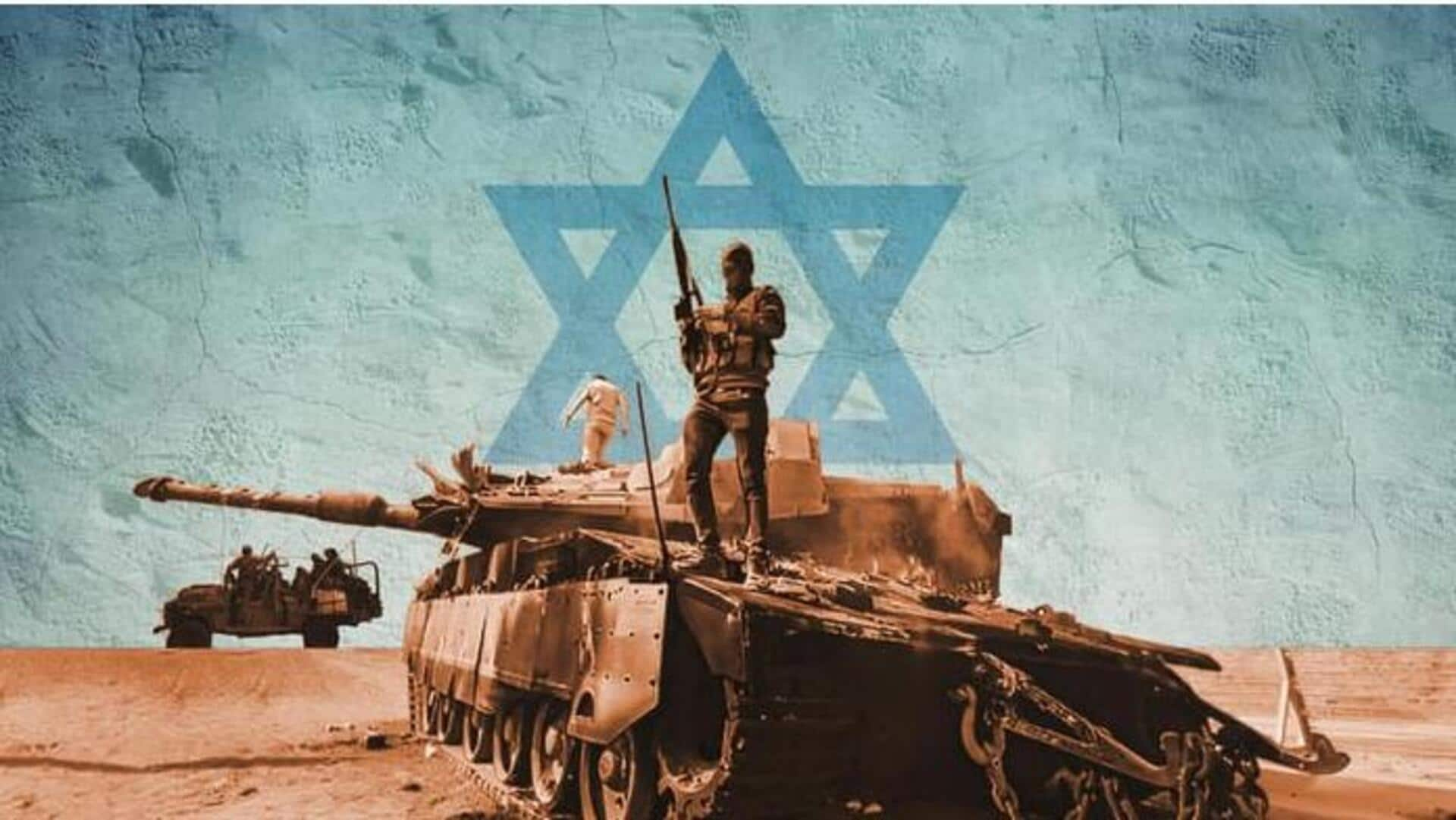
Israel to take 'security' duty in Gaza indefinitely post-war: Netanyahu
What's the story
As Israel's war with Hamas completed one month on Tuesday, Prime Minister Benjamin Netanyahu reportedly said his country will have an indefinite "overall security" role in Gaza once the conflict ends.
Over 10,000 people, including over 4,000 children, have been killed in Hamas-controlled Gaza in Israel's retaliatory strikes targeting the Palestinian terror outfit.
One month into the war, here's everything to know about it.
Context
Why does this story matter?
Among other key developments, the Israeli Defence Forces (IDF) has encircled Gaza City, where Hamas is headquartered.
Moreover, as part of its ground offensive, the IDF cut Gaza into two parts—north and south—while troops established a corridor to the south for trapped civilians to escape.
Also, Netanyahu said Israel would consider "little pauses" in fighting to help hostages escape and allow aid inside Gaza.
Latest statement
Netanyahu's latest statement on Israel-Hamas war
Speaking to ABC News on Monday, Netanyahu opined that Gaza must be ruled by "those who don't want to continue the way of Hamas" without offering details.
"Israel will, for an indefinite period...have the overall security responsibility (in Gaza)... When we don't have that security responsibility, what we have is the eruption of Hamas terror on a scale that we couldn't imagine," he said.
Details
Hundreds and thousands of homes in Gaza obliterated
The Gaza Strip—a 41km long and 10km wide sliver of land—was home to 2.3 million people before the war started. Over 200,000 houses there have been reduced to rubble in Israeli strikes.
The United Nations (UN) has warned a "tragedy of colossal proportions" was unfolding in Gaza.
The Palestinian enclave has been under Israeli siege since 2007 after Hamas took control of it.
Controversies
Hamas's attack last month triggered war with Israel
Hamas's October 7 multipronged attack on southern Israel—involving thousands of rockets launched into the Jewish territory—triggered the ongoing conflict.
It was followed by infiltration by terrorists, who crossed the much-vaunted "Iron Wall" barricade either on foot or motorized paragliders.
The terrorists targeted civilians and set hundreds of houses ablaze. While Hamas's attack claimed over 1,400 lives in Israel, around 240 people were taken hostage.
Beginning
Hamas-Israel conflict ongoing since 1987
Since its inception in 1987, Hamas has engaged in armed resistance against Israel, committed to the creation of a Palestinian state. It de facto rules over Gaza.
Hamas is an acronym for Harakat al-Muqawama al-Islamiya—the "Islamic Resistance Movement."
Interestingly, United States (US) Secretary of State Antony Blinken opined a "revitalized" Palestinian Authority—which nominally runs the West Bank—could return to Gaza if Hamas is eliminated.
Hamas weapons
Where Hamas is getting weapons from
In 2022, the leader of Hamas, Ismail Haniyeh, admitted to receiving $70 million in military assistance from Iran.
Reportedly, the Taliban also siphoned arms into Gaza from Afghanistan. It allegedly supplied the ammunition left by the US military after its pullout from Afghanistan in 2021.
In addition, Hamas also procures equipment like motorized paragliders using funds from Palestinian expatriates.
Controversies
Controversial claims and ministerial suspensions
Last week, Ghazi Hamad, a top-ranking Hamas member, reportedly lauded the October 7 attack on Israel and pledged to continue such offensives until the Jewish country is completely eradicated.
On the other end, Israel's Heritage Minister Amichay Eliyahu was on Sunday indefinitely suspended from parliamentary cabinet meetings after he suggested using nuclear weapons in Gaza to target the Hamas terrorists.
Poll